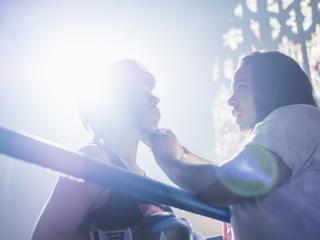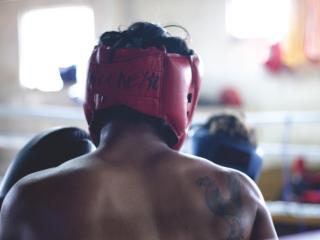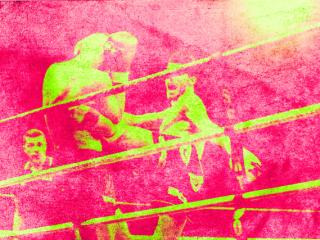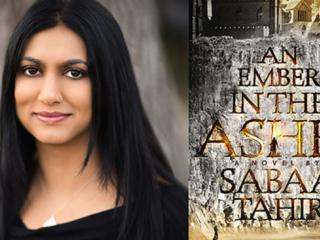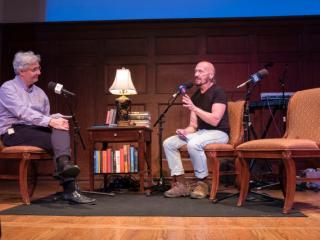Commentator Erika Monroe-Kane reflects on the appeal of driving really fast. Really fast.More
Politics and History
Kate Sekules is a magazine editor, fiction and travel writer, restaurant reviewer and the last person who ever thought she’d find herself in a boxing ring. Until she did.More
Ever wonder what goes through the mind of a fighter in the moments before a fight? Here's one take, courtesy of writer Jonathan Gottschall.More
Jonathan Gottschall is an English professor who trained for MMA – mixed martial arts – out of curiosity and wound up in the ring. Steve Paulson talked with him about why, and what it taught him about our relationship with violence.More
Sabaa Tahir speaks about the inspiration behind her young adult debut.More
Diplomat and writer Emily Parker say by Peruvian Nobel laureate Mario Vargas Llosa uses fiction to uniquely depict what it actually looks like living day-to-day under a authoritarian regime.More
In her new book, "Now I Know Who My Comrades Are," Emily Parker profiles a few online activists, and writes about how they're transforming life in China, Cuba and Russia.More
How painting radium on watches and instrument dials killed more than 50 young women working in Ottawa, Illinois.More
How does it work out over time for people who have made the transition to a new gender? Steve Paulson reached out to a transgender man — Benn Marine — to hear his experience.More
Wendy Kline says the history of birth in America is the story of the medical establishment’s deliberate suppression of midwives. For her as for most mothers, it’s a story that’s political and personal. More
What's it like to discover that your own genetic ancestry is both black and white? At West Chester University in Pennsylvania, Anita Foeman leads the DNA Discussion Project, where students use DNA testing to learn about their mixed bloodlines.More
From the European Union to the United States, analysts have claimed that the Western world is seeing a resurgence of populism. Dutch philosopher Rob Riemen disagrees though, he says it's time to call the problem what it is: fascism.More
Can you hear racism and intolerance? Jennifer Stoever can when she listens to the “sonic color line” — a way to hear racial division, how it’s reinforced and maintained, by whom and why, and at what cost.
More
Sean Wilentz is a leading American historian and a proud liberal. Steve Paulson asked for his take on the new pink tint in Democratic politics.More
Margery Kempe was one of the world's most famous Christian mystics — a medieval pilgrim with a penchant for uncontrollable sobbing. More



